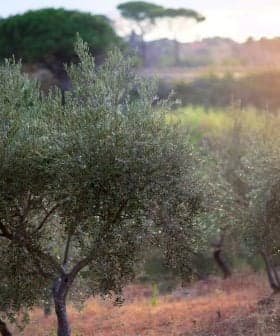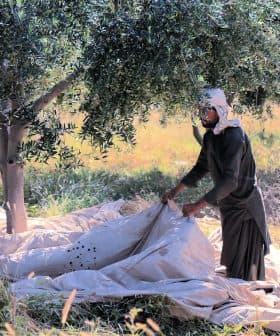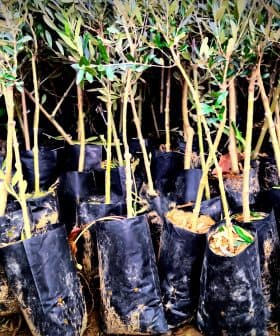Olive Council Inaugurates World Olive Day
The International Olive Council launched 'World Olive Day' to celebrate olive trees, their health benefits and environmental advantages.
 IOC Headquarters in Madrid (Google Earth)
IOC Headquarters in Madrid (Google Earth)The International Olive Council celebrated the olive tree on November 26, highlighting its contributions to sustainable development and natural resource preservation, with a 10 percent increase in global olive tree planting between 2014 and 2016. The celebration included events in various countries, such as Italy, Algeria, Egypt, Spain, Greece, Morocco, Tunisia, Turkey, and Portugal, showcasing the importance of olive trees and olive products worldwide.
The International Olive Council chose November 26 for a celebration of the olive tree, the “universal symbol of peace and harmony, which has now spread to the five continents and contributes to sustainable economic and social development and the preservation of natural resources,” the Madrid organization said.
Between 2014 and 2016, the land area in the world planted with olive trees have increased by 10 percent: from 10 million hectares (24.7M acres) to 11 million hectares (27.1M acres), of which well over 8 million hectares (19.7M acres) are not irrigated.
A ceremony was held at the headquarters of the IOC, during which the executive director, Abdellatif Ghedira, read an official declaration on the importance of olive trees, their health benefits and their environmental relevance.
This was also the subject of a short film prepared for the COP22 conference: ‘Olive oil, the liquid gold helping to reduce greenhouse gas emissions.’
“As an agent in combating global warming, olive growing has a positive carbon balance, sequestering more CO2 in its growth cycle than the greenhouse gasses emitted in the production process of virgin and extra virgin olive,” Ghedira noted.
“Olive oil and table olives “are a proven source of nutrition and health, key ingredients in the Mediterranean diet and increasingly appreciated by the world’s most renowned chefs.”
Furthermore, “the action of their many therapeutic properties in preventing certain diseases is now widely recognized,” as the IOC declared during the event.
The ceremony included a tribute to Shimon Lavee, who twice held office as the IOC chairperson and who contributed considerably to the activities of the organisation and to the development of the sector.
With the idea to set up an annual celebration, the IOC published in September a call for proposals for grants to co-finance the series of simultaneous events which have been scheduled by member countries (the United States is not a member of the IOC).
- In Italy, the World Olive Day has been celebrated in collaboration with Unaprol with a full day of study on the development of the olive oil quality systems and economic and environmental aspects of the appellation of origin procedures. The event coincided with the twentieth anniversary of the first five Protected Designations of Origin (PDO) for extra virgin olive oils at the European level: Aprutino pescarese, Brisighella, Canino, Collina di Brindisi and Sabina.
- In Algeria, the celebration of WOD 2016 was inaugurated by the minister of agriculture and included a demonstration of the operation of a crushing unit and a tasting of the oil produced, that was followed by olive tree plantings.
- In Egypt, a seminar on olive growing and the environment and the health benefits of olive products took place in collaboration with the University of Alexandria.
- In Spain, a workshop for foreign students was held at the University of Jaén including a talk on olive oil, with a tasting session and cooking demonstrations.
- In Greece, the Kalamata Olive Oil Taste Laboratory organized sensory analysis sessions and a seminar on the health benefits of olive oil, organoleptic quality standards, and quality management.
- In Morocco, the fifth edition of the International Forum on Olive Oil was held in Meknès, with a conference that highlighted the value of the olive tree biomass as a new and renewable energy source.
- In Tunisia, the event focused on the extension of the olive growing area in the country and the sustainability of the sector. One thousand olive trees were planted in nurseries.
- In Turkey, after a visit to an ancient mill, participants took part in the harvest of monumental olive trees and oil extraction at a press kept at the Museum of Olive Oil.
- Portugal celebrated World Olive Day with the president of the Casa do Azeite, Luís Folque and the minister of agriculture, forestry and rural development, Luís Manuel Capoulas Santos.






